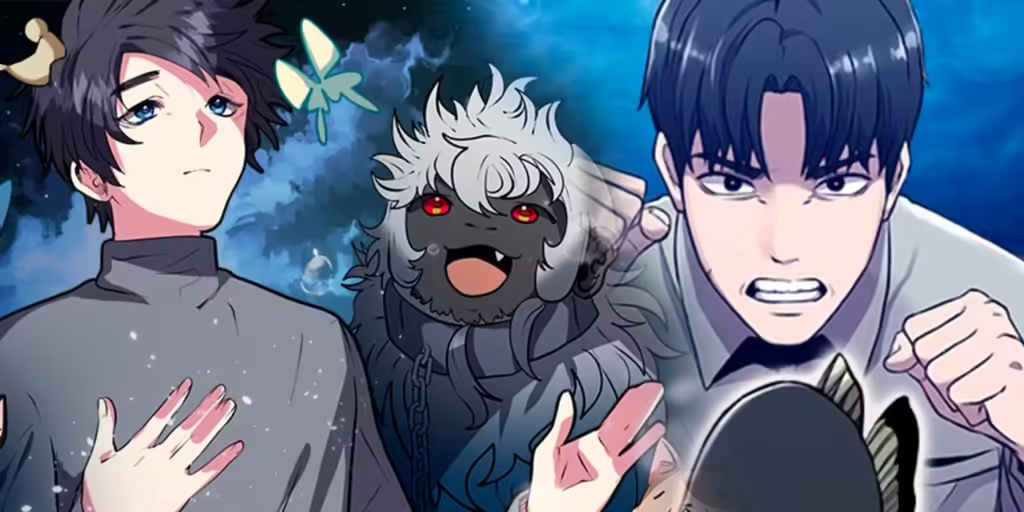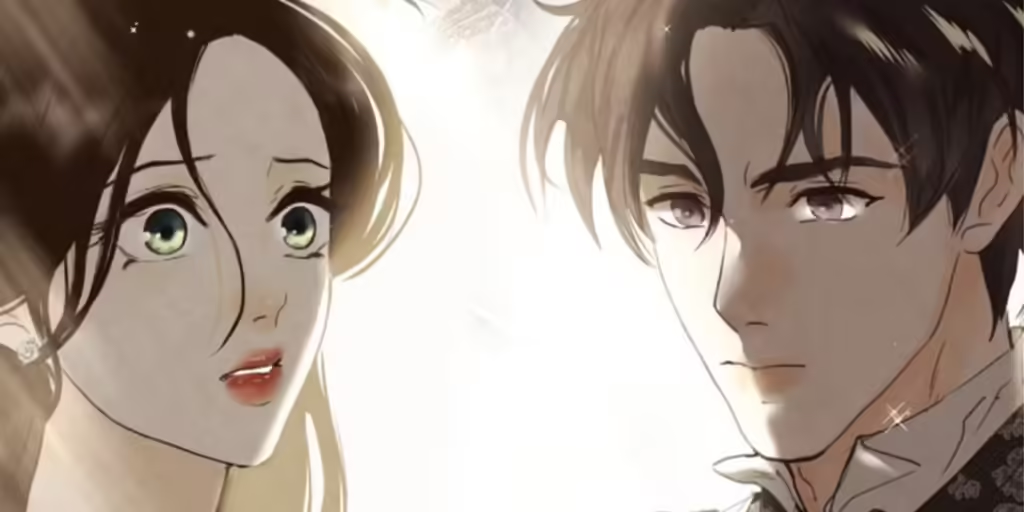Webtoons TV Tropes make webtoons even more exciting! These tropes are storytelling tools that make your favorite webtoons fun, emotional, or full of action. Whether you like romance, fantasy, or superheroes, tropes help bring stories to life.
Webtoons TV Tropes are everywhere in webtoon stories. From classic love triangles to epic battles between good and evil, these tropes guide how the story unfolds. By understanding these patterns, you can enjoy webtoons in a whole new way! Let’s dive into the most common and unique tropes in webtoons.
What Are Webtoons TV Tropes? A Simple Explanation
Webtoons TV Tropes are storytelling tools often used in webtoons to create engaging and relatable stories. A trope can be a common theme, a character type, or even a specific plot twist. These tropes are like the building blocks of storytelling, helping writers craft plots that keep readers hooked.
For example, the “hero’s journey” is a popular trope in webtoons where the main character starts as an ordinary person and grows through challenges. Another common trope is the love triangle, often seen in romance webtoons. These patterns make stories familiar yet exciting, giving readers something they recognize while still adding unique twists.
Webtoons TV Tropes help readers connect with the story. Familiar tropes make it easy for fans to relate to the characters and guess what might happen next. At the same time, creative writers find ways to reinvent these tropes, keeping stories fresh and unpredictable.
Why Do Tropes Matter in Webtoons Stories?
Tropes are vital in webtoons because they create structure and appeal to readers’ emotions. Without tropes, stories might feel disorganized or fail to resonate with the audience. They help set expectations, giving readers a sense of what the story is about.
For instance, when you see a webtoon featuring a “chosen one” trope, you know it will be a tale of growth and responsibility. Similarly, in a slice-of-life webtoon, tropes like “found family” or “quirky best friend” make the story more relatable and heartwarming.
Tropes also make webtoons easier to discover. Readers searching for stories in specific genres often look for familiar patterns. Writers can use tropes strategically to attract an audience while ensuring their stories remain unique. This balance between familiarity and innovation is what makes webtoons so captivating.
Popular Webtoons TV Tropes You’ll Find in Every Genre
Webtoons are filled with tropes that work across genres, from romance to fantasy. These common tropes often appear in the most popular stories. Let’s explore a few examples:
- Enemies to Lovers
In romance webtoons, two characters who start as rivals often end up falling in love. This trope adds tension and keeps readers invested in how the relationship evolves. - Overpowered Protagonist
Fantasy webtoons frequently feature a character who is ridiculously strong or skilled. This trope allows for epic battles and showcases the protagonist’s growth. - Time Travel
Many webtoons use time-traveling characters to explore alternate timelines or fix past mistakes. This trope keeps readers guessing what will happen next.
These tropes may seem simple, but when done right, they can make any story unforgettable.
Unique Tropes That Make Webtoons Special
While some tropes are universal, webtoons often introduce unique ones that set them apart from other forms of storytelling. These original ideas reflect the creativity of webtoon writers and artists.
One such trope is the “game-like world,” where characters live in a world governed by RPG-style rules. This trope is especially popular in action or fantasy genres. Another unique trope is the “reincarnated villain,” where the protagonist wakes up as a past-life antagonist and tries to change their destiny.
Webtoons also excel at blending tropes from different genres. For example, a romance webtoon might include fantasy elements like magical powers or mythical creatures, making the story more engaging. By mixing and reimagining tropes, webtoons stay fresh and exciting for readers.
The Role of Tropes in Romance Webtoons
Romance webtoons are filled with tropes that tug at readers’ heartstrings. These patterns make the love stories more emotional and relatable.
One popular trope is “the love triangle,” where two characters compete for the affection of the main character. This trope creates suspense and keeps readers guessing who will win. Another common trope is “fake dating,” where two characters pretend to be a couple but eventually fall in love for real.
The use of tropes in romance webtoons allows writers to explore various relationships and emotions. From sweet first loves to heart-wrenching breakups, these stories capture the many sides of romance. Readers love the familiarity of these tropes while enjoying each writer’s unique spin on them.
How TV Tropes Add Excitement to Fantasy Webtoons
Fantasy webtoons thrive on TV tropes that make their worlds magical and intriguing. These tropes often involve mythical creatures, epic quests, or ancient prophecies.
One exciting trope in fantasy webtoons is “the chosen one,” where a seemingly ordinary character discovers they have a special destiny. Another favorite is “forbidden magic,” where characters must navigate the dangers of using powers they’re not supposed to have.
Fantasy webtoons often combine these tropes with rich world-building and detailed art, creating immersive experiences for readers. The familiarity of these tropes gives readers a foundation, while unique twists keep them coming back for more.
Examples of Webtoons That Use Tropes Perfectly
Some webtoons are masters at using tropes to their advantage. They take familiar patterns and give them fresh, creative spins. Here are a few examples:
- “Lore Olympus”
This romance webtoon reimagines the myth of Hades and Persephone, blending modern settings with ancient mythology. - “Tower of God”
This fantasy webtoon uses the “climbing the tower” trope but adds complex characters and intricate plots to stand out. - “True Beauty”
Focusing on self-image and inner beauty, this webtoon cleverly uses the “ugly duckling” trope to deliver a heartfelt story.
Each of these webtoons showcases how tropes can be used creatively to tell powerful and memorable stories.
The Difference Between Clichés and Creative Tropes in Webtoons
It’s important to understand the difference between clichés and creative tropes. While both involve familiar ideas, clichés are overused and lack originality, whereas creative tropes are familiar but fresh.
For example, a cliché might be a love triangle with predictable outcomes, while a creative trope could involve surprising twists, such as a polyamorous resolution. Writers who innovate within tropes often create stories that feel both familiar and new, striking a perfect balance for readers.
Why Readers Love and Relate to Webtoons TV Tropes
Readers enjoy tropes because they make stories easier to connect with. Familiar patterns provide comfort and help readers immerse themselves in the story.
Webtoons TV Tropes also allow readers to see themselves in the characters. Whether it’s overcoming challenges, finding love, or growing as a person, these tropes reflect universal experiences. This connection makes webtoons a favorite form of entertainment for fans worldwide.
Tips for Writers: Using Tropes to Create Great Webtoons
How to Choose the Right Tropes
- Consider your target audience and genre.
- Use popular tropes with a unique twist.
- Avoid clichés by adding unexpected elements.
Balancing Tropes with Originality
- Combine multiple tropes to create fresh ideas.
- Focus on character development to enhance the story.
- Experiment with reversing common tropes for added depth.
By using these tips, writers can create webtoons that stand out while still appealing to fans of familiar storytelling patterns.
Conclusion
Webtoons TV Tropes make stories fun and exciting for readers. They are like a recipe that writers use to make amazing tales about love, adventure, or magic. Tropes like “enemies to lovers” or “the chosen one” help people enjoy stories they can relate to. These patterns feel familiar but are often made fresh by creative writers who add their own special twists.
Readers love these tropes because they feel connected to the characters and their journeys. Whether it’s a fantasy adventure or a sweet romance, tropes give stories structure and heart. If you enjoy webtoons, now you know why certain stories feel so magical!
FAQs About Webtoons TV Tropes
Q: What are TV tropes in webtoons?
A: TV tropes are storytelling patterns or ideas used in webtoons, like love triangles or hero’s journeys, that make stories more engaging.
Q: Why are tropes important in webtoons?
A: Tropes help create structure and make stories relatable. They also keep readers interested by giving them familiar and exciting themes.
Q: Are tropes the same as clichés?
A: No, tropes are tools to tell stories, while clichés are overused ideas that can feel boring if not used creatively.
Q: Can a single webtoon have multiple tropes?
A: Yes, most webtoons mix several tropes, like combining romance and fantasy, to make their stories unique and entertaining.
Q: Do all webtoons follow the same tropes?
A: No, while some tropes are common, many writers put their own twist on them to make the story feel fresh and original.


